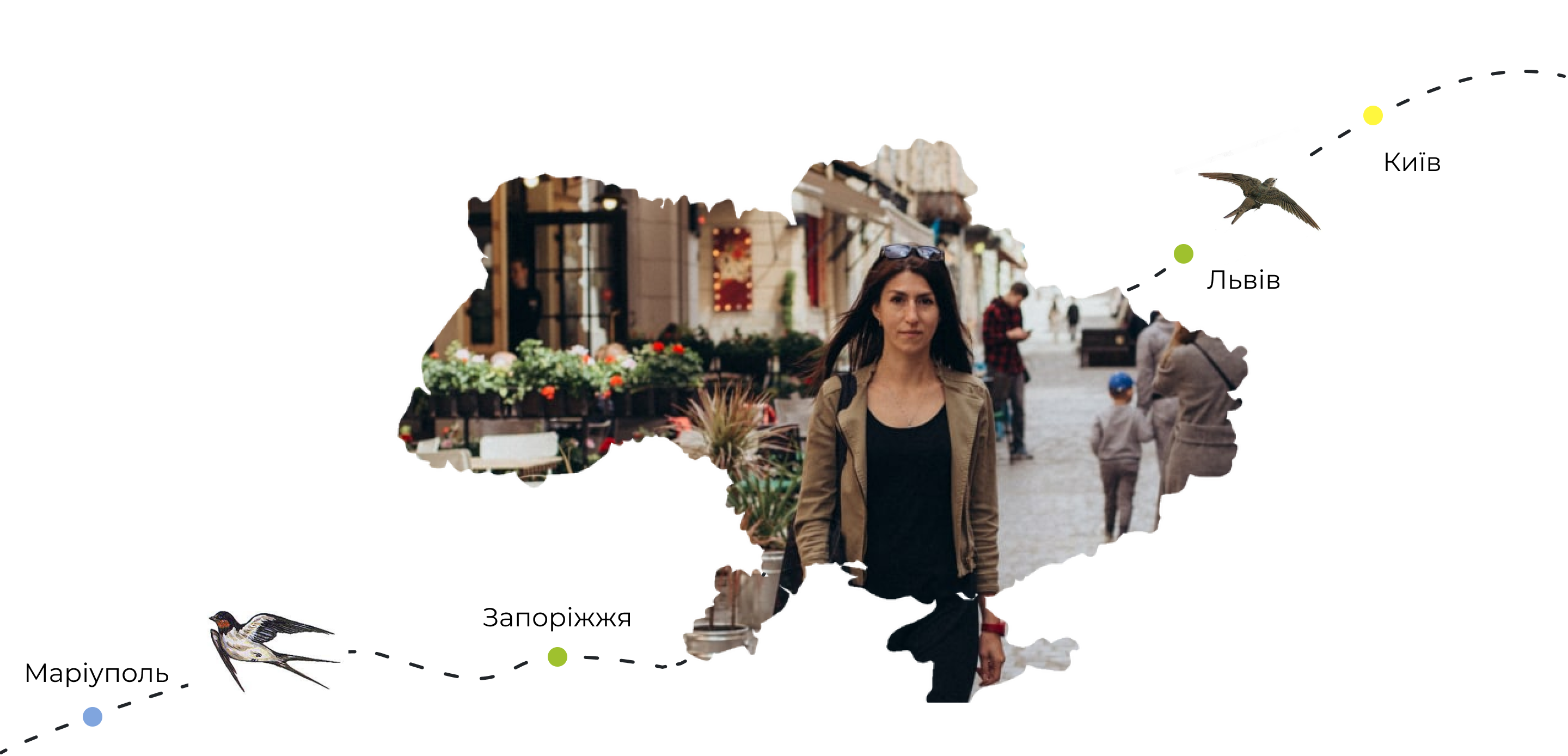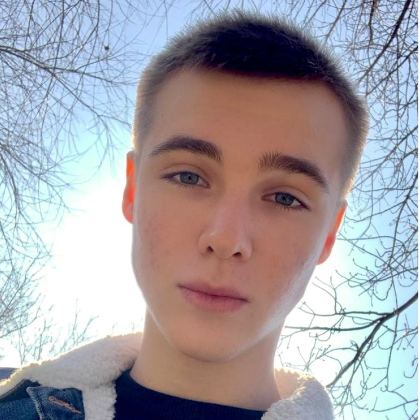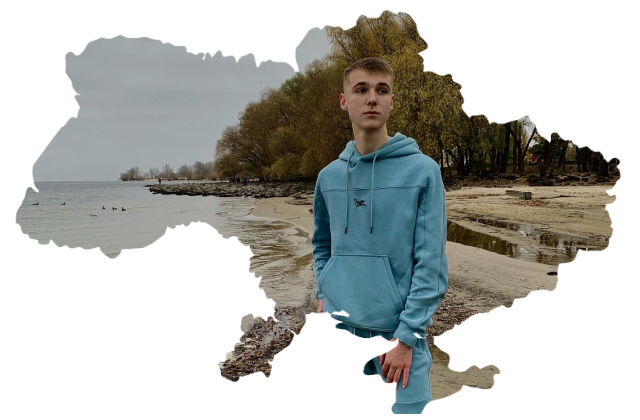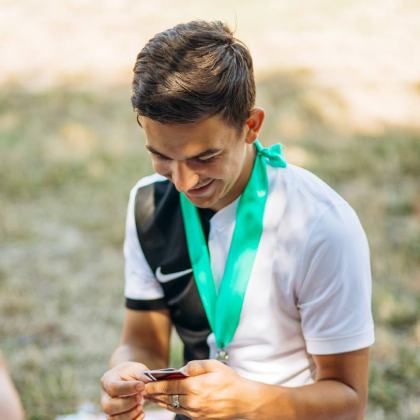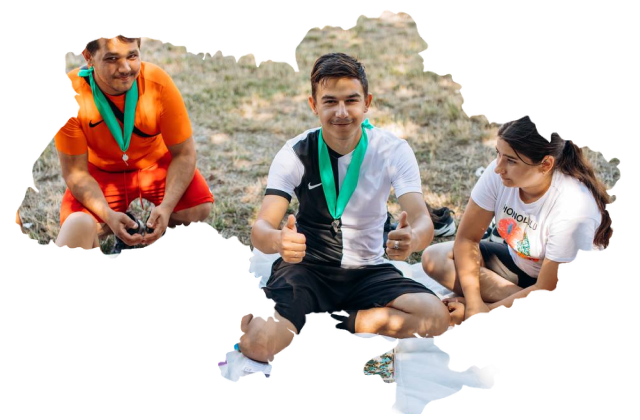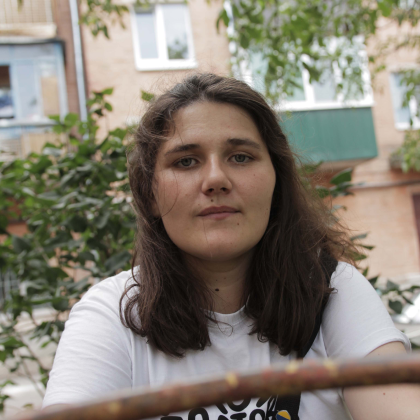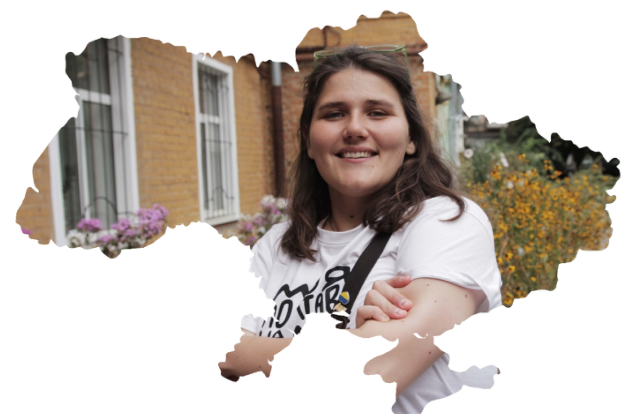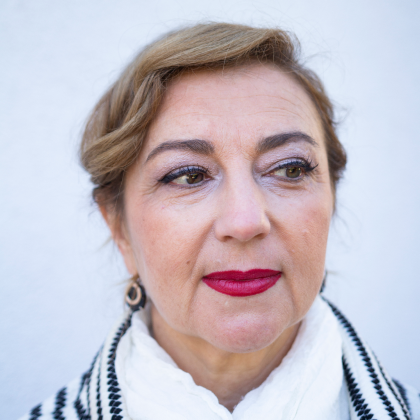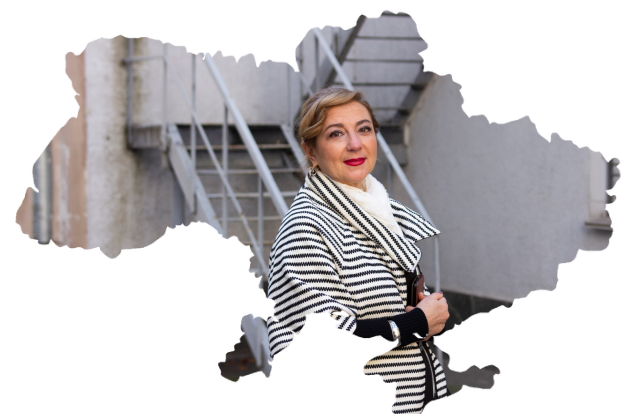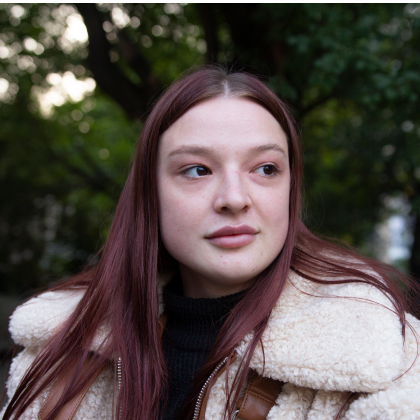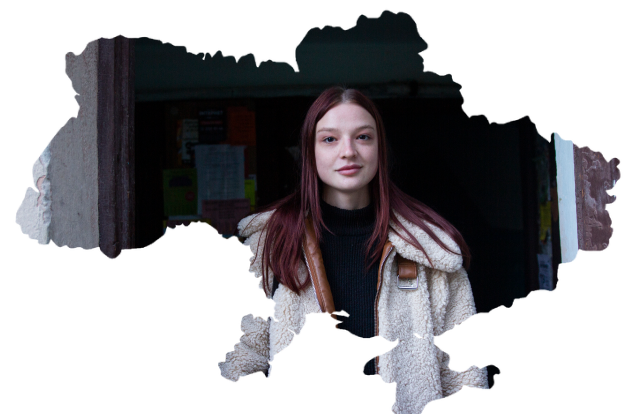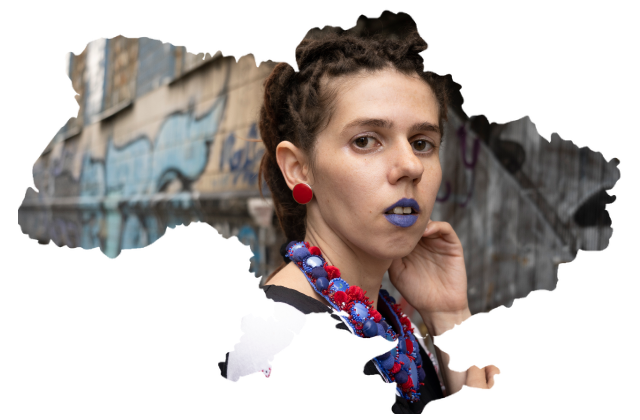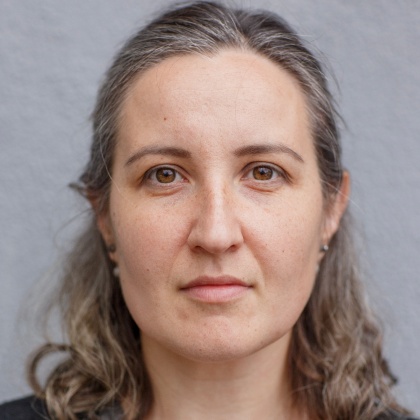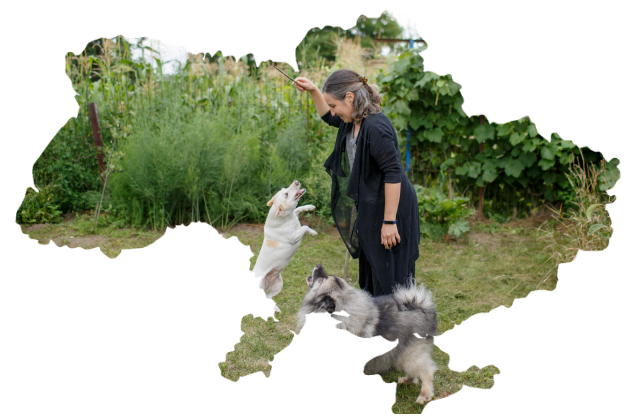Corporis quis sequi alias quibusdam in aut sunt. Eius sit ut deleniti eos. Ea sed voluptatem sed magnam. Excepturi iusto non nemo consequatur.
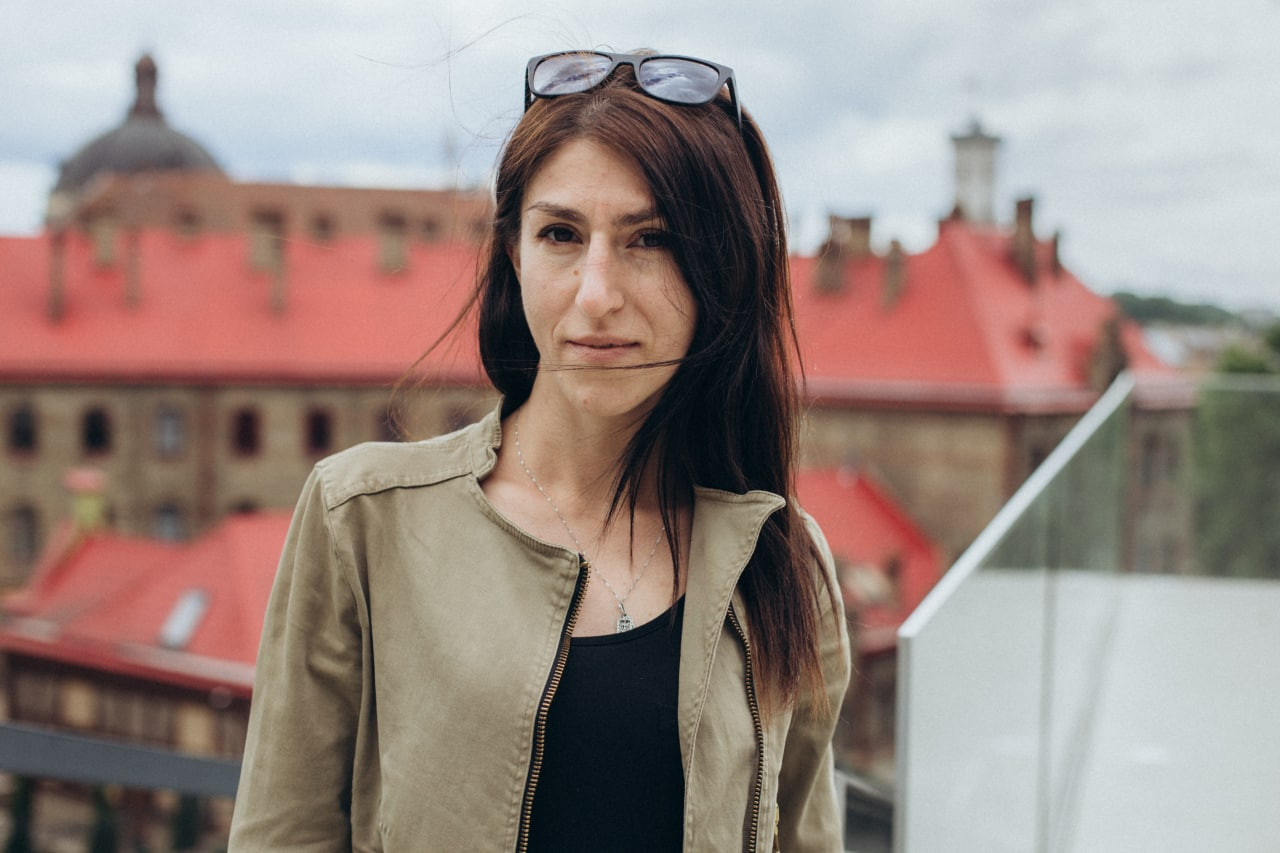
Mariupol — Zaporizhzhia — Lviv — Kyiv
I am from Mariupol. Before the war, I had my own lingerie store. To be honest, I'd already got used to martial law in the city since 2014. At first, it scared me, but after a year or two or three, I didn't really pay attention to that noise anymore. That is, hearing shooting while sitting on the beach seemed something normal to me.
So when everything started on February 24, 2022, it was no surprise. To the last minute I believed that everything would be exactly like in 2014: even though the explosions were very close, I thought that everything would be fine in a week or two. I had no idea that the whole thing would get to that scale.
At 9 a.m. on February 24, I was already in our volunteer headquarters with the same patriot volunteers who two days before stood with me in the city center holding flags and shouting "Mariupol is Ukraine." We started gathering like that back in 2014, so on February 24th, our group chat had a hundred members. And we all instantly agreed to do something.
We started by checking the remaining medicines in the headquarters from the previous years of our volunteer work. Someone went to The Territorial Defence Forces with what was left, and someone called them with a suggestion to help in some way. We started weaving camouflage nets for our defenders.
A few days later we started helping the police and hospitals. Our volunteer hub very quickly grew into something very large-scale and gained the status of a central hub.
Soon the city started experiencing problems with electricity and water, and the connection got disrupted more and more often. One could hear the shooting getting closer and closer.
I live with my mother. For the first three days, I could still use public transport to get to the headquarters. Then everything stopped, and I started going there on foot, and by the evening I would walk all the way back home. It was about 40 minutes away from where I lived. My mother got very nervous, because the connection disappeared more and more often, so one day she said: "I want to go with you because I can no longer sit at home on pins and needles waiting for you."
And so my mother and I went to the headquarters together every day, as if we were characters of a macabre computer game. We had to run to our destination, watching out the whole way for places to hide or lie down. In some places like parks, you had to know which tree to fall under so you get less hurt if a missile hit the area.
At first, we would hear the sounds from afar, but then the aviation started flying right above us. We listened carefully to figure out which way a fighter jet was heading and counted: "The first explosion - not here, that's cool.” You stand still and wait, and then: "The second one... run!". There was some time to get to another hiding place before the plane came back again.
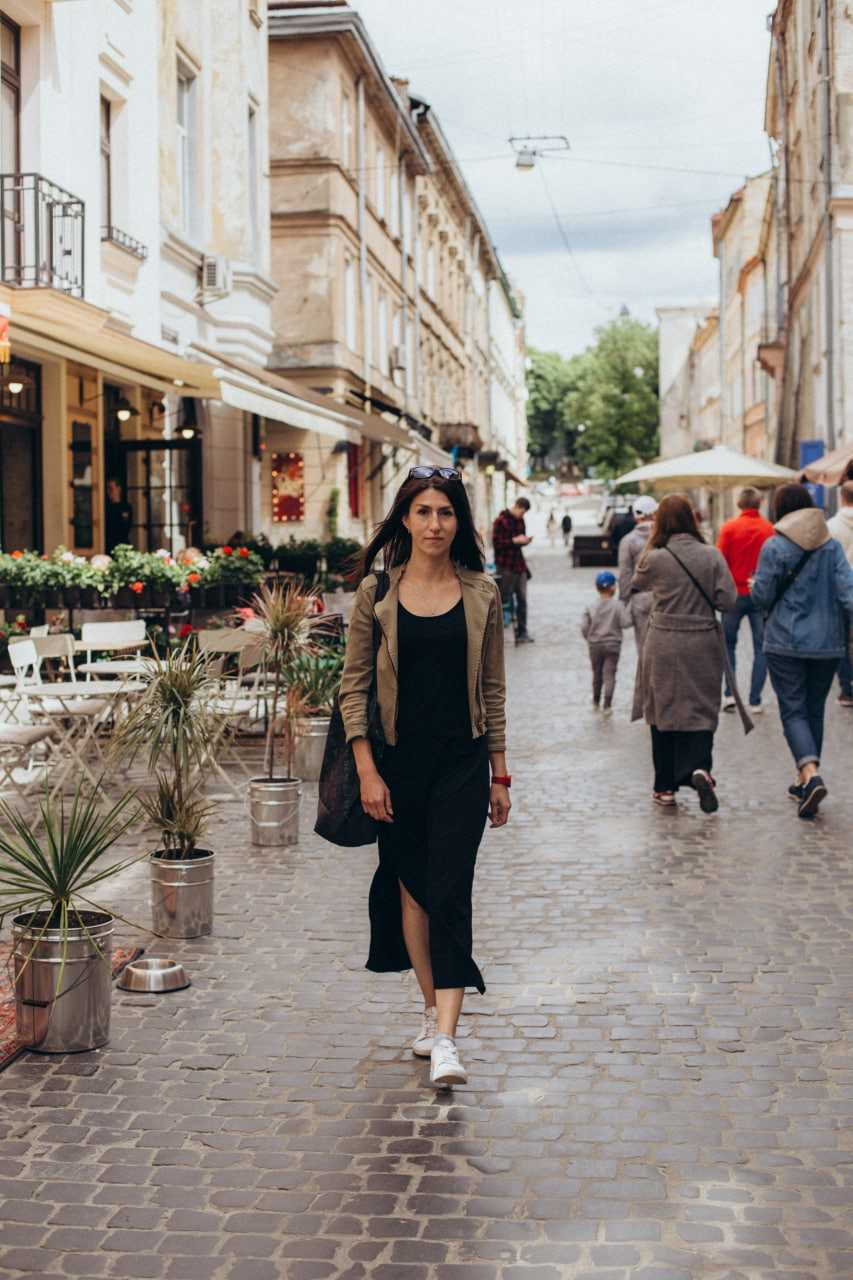
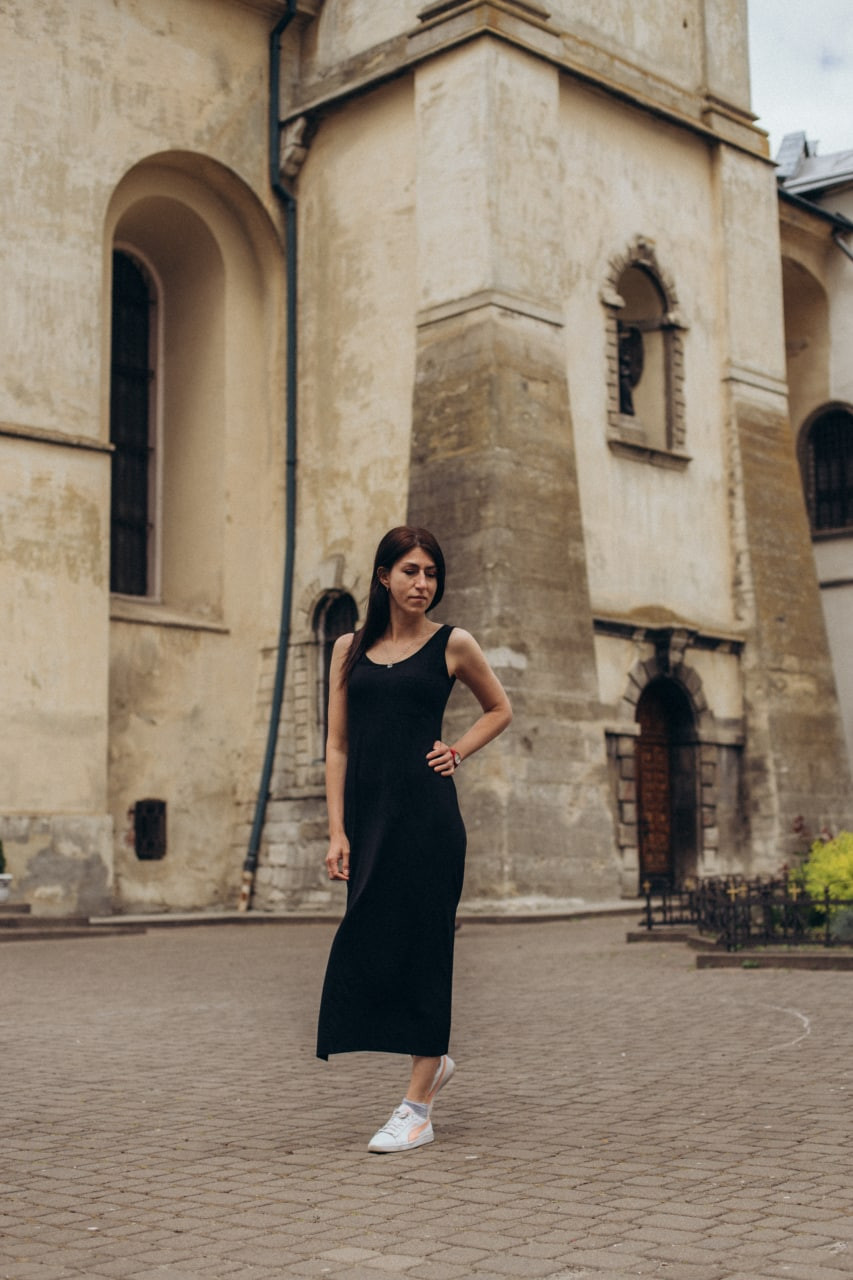
It was very dangerous indeed, but the fact that we were working in a volunteer hub actually saved our mental health, because it kept our brains busy all day long. You had to get there first, figuring out how to do it in the safest way possible. When you got there, there was no time to hang around - everyone was busy doing something. In the evening you had to run home before curfew, make yourself some kind of a meal, and then you would just black out from fatigue. There was no time to panic, analyze what was going on around us, feel sorry for ourselves, etc. In addition, thanks to the headquarters I had information about what was happening in the city.
On March 13, they started shelling very close to our hub. Apparently, the Russian military found out about it because their air force started bombing too close to the hub and destroyed a school nearby. We all decided that it was better to leave because we might have been bombed any second.
That day my mother and I came home early. At that moment a bomb flew into an apartment on the fifth floor of our building, but it didn't explode. All the windows at our place on the third floor got blown out, so we went down to the basement and stayed there for a week. We cooked outside on the open fire and whenever anything hit the neighbourhood, we hid in the entryway.
In the middle of March, when the street fighting started, it became unbearable. We had to find a way to leave. Our neighbour, a father of three children, had a car and waited for his wife to leave. She worked at a hospital on the other side of Mariupol and hadn't been out of contact for two weeks. She took one of the children to work with her. The other two stayed with their father. So he decided to at least evacuate those two. "I'm going to the garage now," he said to us, "If the car is intact, there must be fuel in it. You and your mother can come with us. Be ready in an hour."
My neighbour, his two children, his dog, his mother-in-law, my mom, and I somehow fit in a small car and left the city on March 20, because we realized that we wouldn't have another opportunity.
When we made it out of Mariupol, we decided that we needed to get to Zaporizhzhia, the nearest point controlled by the Ukrainian forces. As we were driving, we got stopped every 300-500 meters at dozens of checkpoints, which meant that we could see the previous one from the one we were at. Russian soldiers kept trying to find something, it's hard to say what it was exactly, but it was very exhausting both mentally and physically.
We spent the night in Berdyansk. We washed up for the first time in a month. We left in the morning and reached Zaporizhzhia late at night. Volunteers met us there, took us to a kindergarten, and fed us. "Where do you need to get to: to the railway station or bus station? Please, help yourselves to food and drinks!" They treated us like children, with warmth and kindness.
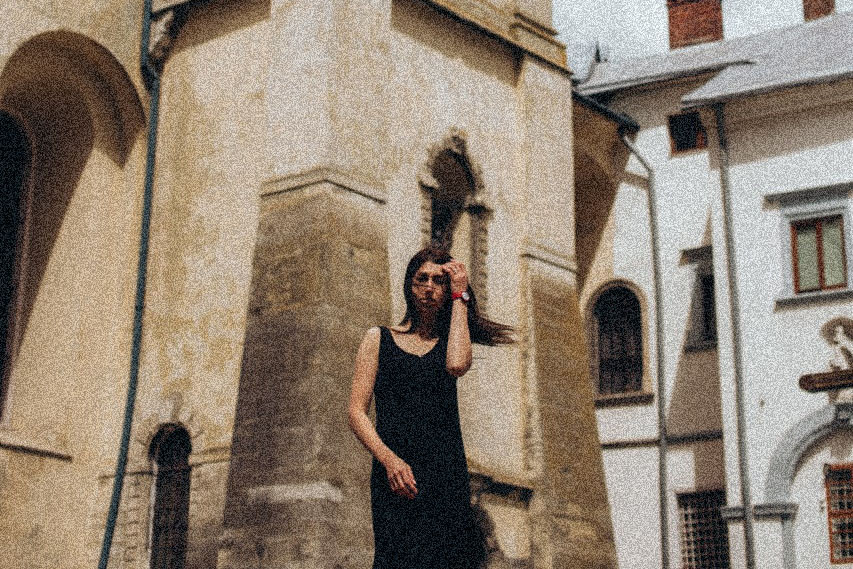
By the way, things ended well for the neighbour's wife and their child, too. She worked in a psychiatric hospital in Mariupol, and there were good bomb shelters there. She waited there for some time and later was able to reunite with her husband and kids in Dnipro.
My mother and I left Zaporizhzhia for Lviv. We lived there for almost half a year, but now we have moved to Kyiv. I have nothing personal against Lviv, but we couldn’t find jobs there.
I am planning to leave my mom in Kyiv and go abroad to try new opportunities because to me our victory is a matter of time, which we must use effectively. I mean, we all need to make it to the end of the war and keep our psyche as healthy as possible. I don't just hope for victory, I'm sure it's imminent!
My home is the safest and coziest place that I want to go back to, no matter where I am. That's where my family is. That's the place where I can regain strength. And it hasn't changed its location, it's just temporarily unavailable.
Recorded by Alyona Vorobiova
Translated by Volha Mikhnovich
